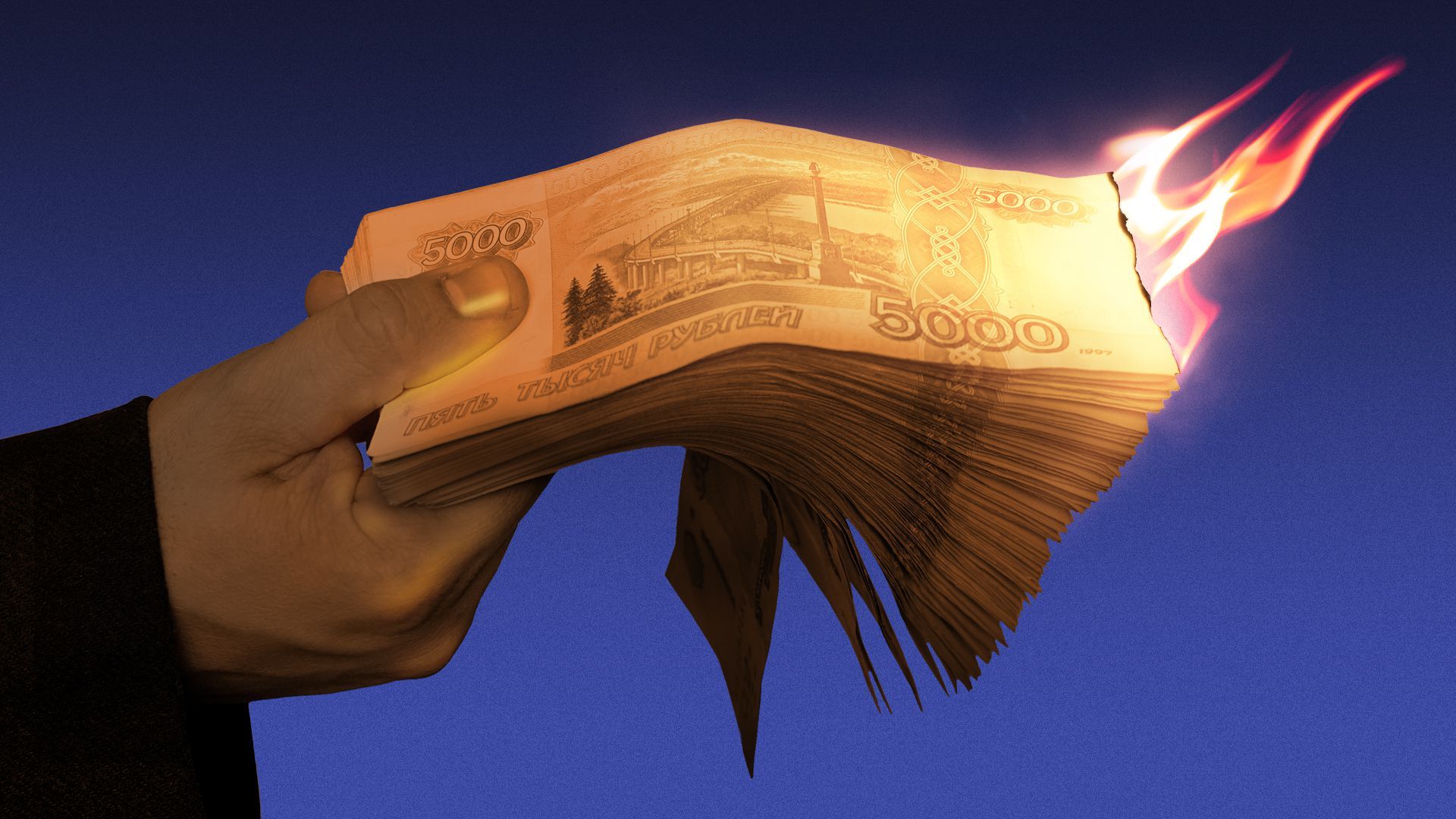
Illustration: Shoshana Gordon/Axios
Russia’s budget deficit widened sharply in January, as the latest sanctions on Russia’s energy exports — and the mounting expense of its brutal war on Ukraine — may be starting to erode the Kremlin’s heavily fortified finances.
Why it matters: Since Russia’s invasion nearly a year ago, Western officials warned that it would take time for the full impact of sanctions to be felt in Moscow. That moment could be drawing closer.
Driving the news: Russia’s Ministry of Finance reported that its budget deficit for January exploded to 1.8 trillion rubles — or around $25 billion — up roughly 14 times from last January’s deficit of roughly $2 billion.
- Oil and gas revenues dropped 46% from January 2021 levels.
- Military spending drove government outlays up 59%, according to the Wall Street Journal.
What they’re saying: Janis Kluge, an expert on Russian state finances with German Institute for International and Security Affairs, wrote on Twitter that the deficit is “highly unusual and points to a larger deficit for the full year.”
The big picture: The report suggests that recent Western efforts to tighten the screws on Russia may be bearing fruit.
- In December, Europe moved to fully ban Russian imports of crude oil, in response to the invasion.
- The G7 also imposed a price cap on Russian oil, which it’s enforcing through its leverage over the maritime insurance industry.
- Russia has also been forced to reroute crude shipments to countries such as India and China, who have been big buyers, but at discounted prices.
Yes, but: Russia isn’t anywhere near being out of money. Vladimir Putin has focused for years on building up the country’s financial defenses, which remain formidable.
- They include Russia’s national wealth fund, a kind of rainy day fund comprised of money from oil and gas revenues that have been socked away.
- The finance ministry announced on Monday that it has roughly $155 billion in the fund, or about 7% of GDP, according to Reuters, that it can use to help cover deficits.
The bottom line: The financial pressure on Russia appears to be building.







